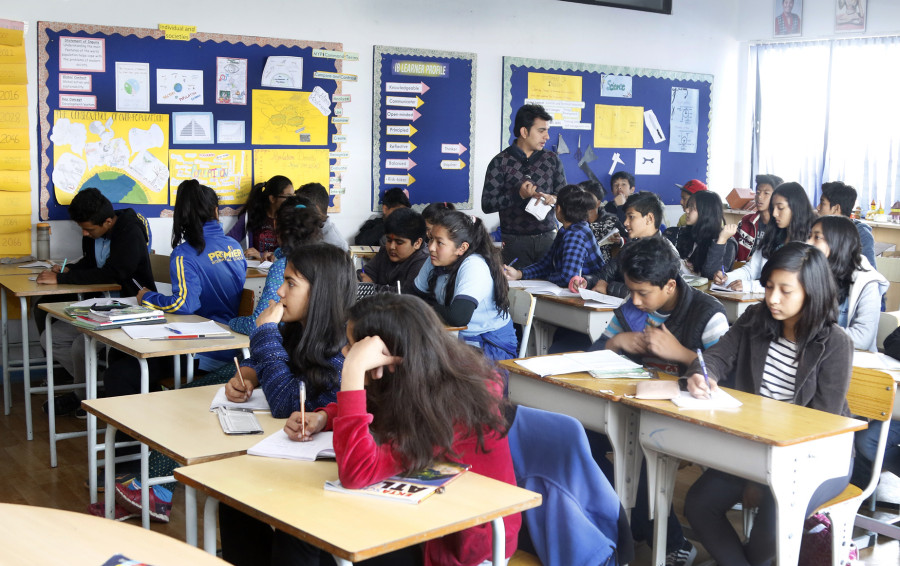Editorial
Needed: More money for schools
The government must ensure adequate funding for education.
Education is an important aspect of any country’s strategy to develop and grow. After all, a well-educated populace is essential to create a skilled workforce, not to mention a well-informed society that can reap the benefits of democracy. It was in this spirit that the framers of Nepal’s constitution provisioned for the state to bear the burden of educating its people.
Article 30 (2) of the constitution gives every citizen the right to free, and compulsory, education up to the basic level (till grade 8) and free education up to the secondary level (grade 12) from the state. These are economically burdening provisions—tough for a least developed country to achieve. Yet, knowing how important that investment in education is for a prosperous future, the lawmakers put these legally binding provisions in place. But over four years since the promulgation of the constitution, the education sector is still lagging far behind.
Perhaps free education for all was an ambitious target that will take some more years to be implemented—even though its constitutional mandate means that it shouldn’t. However, the government has also been failing achievable goals from set-term programmes.
In a joint review meeting comprising of donors and the Education Ministry, it was found that the School Sector Development Programme has failed to meet a majority of its targets that it was set to achieve by the last fiscal year. The plan, which began in 2016 and is slated to end in 2023, is funded by the Asian Development Bank, Japan International Cooperation Agency and UNICEF, among others, and part of it is a results-based lending programme. Needless to say, not fulfilling the set targets at the halfway point will have repercussions on the implementation of the entire programme. This is unfortunate.
Among the 30 indicators from six different sectors, targets have only been met in five, an astoundingly low number met. What’s worse, most of the successful ones seem to be tied to enrollment, even as targets in quality of education and retention of students have been left unmet. Enrollment drives have become a source of easy publicity for the government. The prime minister and several ministers have been known to take the ‘guardianship’ of some children in PR campaigns during grand inaugurations. However, experts in the education sector doubt if the thousands of new students claimed to have been enrolled every year actually end up in classrooms. The review of the School Sector Development Programme just goes forward in proving this.
To improve retention and quality, the government must ensure adequate funding for the education sector. The global practice has been to allocate at least 20 percent of the national budget for education. This is especially important here, due to Nepal’s lofty goal of providing free education to all up to grade 12. Yet, despite numerous assurances and promises of allocating as much, the government has failed to do so. When the Development Programme was planned, the government had agreed to allocate at least 15 percent of the total federal budget for education. Yet, the share of the education budget has actually gone down, from 12.04 percent in the fiscal year 2016-17 to 10.69 percent in the last fiscal year.
If the government is serious about its attempt to better education, it must pledge to increase support toward the sector from the next budget onwards. A 20 percent budgetary allocation may not provide free education for all, but it will at least help to improve the quality of education, and perhaps help retain more students. The programme, in its next three years, will hopefully provide more metrics about where the government is going wrong, and where it has made encouraging improvements. The learnings of the same should be applied constructively.
***
What do you think?
Dear reader, we’d like to hear from you. We regularly publish letters to the editor on contemporary issues or direct responses to something the Post has recently published. Please send your letters to [email protected] with "Letter to the Editor" in the subject line. Please include your name, location, and a contact address so one of our editors can reach out to you.




 18.12°C Kathmandu
18.12°C Kathmandu














